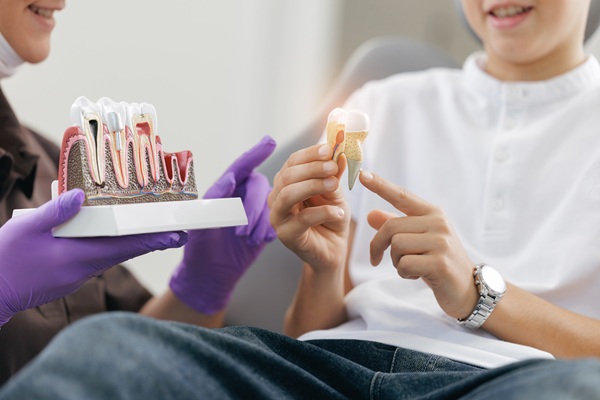Preventative Measures Offered by a General Dentistry Clinic

General dentistry focuses on preventative treatments that keep your teeth and gums healthy. It starts with educating patients about the importance of oral hygiene since that protects you against the two most common issues that people seek the services of a dentist for -- gum disease and tooth decay.
Bacteria in the mouth cause such issues. These microorganisms feed on sugars in the mouth, creating plaque and acids that destroy teeth structures. Plaque hardens into tartar when left on teeth for more than 24 hours, and tartar cannot be removed by brushing or flossing. Plaque and tartar can make their way onto teeth roots and gum pockets, leading to gum disease.
Popular preventative treatments used in general dentistry
Preventative treatments that make up the foundation of general dentistry include the following.
1. Dental sealants
Dental sealants are used to protect against tooth decay. The procedure involves using liquid composite resins to coat the patient’s teeth. The coating goes on the biting surfaces of teeth, preventing food particles, bacteria, and acids in the mouth from making direct contact. Dental sealants can protect teeth from decay for up to five years, and top-up treatments can be performed as needed.
2. Fluoride treatments
Fluoride treatments protect teeth against tooth decay and help re-mineralize the teeth, strengthening their enamel. Fluoride treatments can also reverse the early stage of tooth decay, called the de-mineralization stage.
Dentists have various options when it comes to administering fluoride treatments. The product used might be liquid or in gel form. It is typically applied with a mouthguard that the patient bites down on and keeps in their mouth for up to a minute.
3. Teeth cleaning
Teeth cleaning protects teeth against tooth decay and gum disease. It involves using a metal tool called a scaler to remove plaque and tartar from teeth surfaces. Tartar cannot be removed by brushing, so regular teeth cleanings are needed to remove tartar deposits on teeth.
Tartar contains bacteria and the acids that they make, and it gives them a haven from which they can attack the teeth and gums. Tartar buildup below the gum line can lead to gum disease.
The American Dental Association recommends getting teeth cleanings at least two times a year. Patients who have a higher risk of tooth decay or gum disease might have to get them more frequently.
4. Custom appliances
Dentists can also provide various custom appliances that help protect your teeth and gums. For example, for patients who grind their teeth, dentists can provide nightguards that help reduce the stress placed on the teeth, preventing damage to their structures due to the grinding. Dentists can also provide protective mouthguards for patients who plan to engage in contact sports.
Frequently asked questions about preventative dentistry
Here are the answers to some of the questions you might have about preventative dentistry:
1. When should I floss? Before or after brushing?
Flossing once a day protects you against tooth decay and gum disease. However, dentists typically recommend flossing before you brush. Flossing removes bacteria, food particles, and debris from interdental spaces. These irritants then linger in the mouth as saliva slowly washes them away. Brushing right after you floss gets rid of all the nasty stuff flossing pulled out of your interdental spaces. Flossing after you brush is like cleaning your cabinets after mopping the floor. You might get some food particles on that freshly cleaned floor.
2. What type of toothbrush should I use?
Dentists typically recommend using a soft-bristled toothbrush for oral hygiene. Gum tissues are sensitive, and a hard toothbrush can irritate them, leading to receding gums. A hard toothbrush can also damage enamel, making teeth more vulnerable to tooth decay.
3. How important is it to treat gum disease early?
It could not be more important since gum disease can be reversed in its early stages. Improving your oral hygiene and regular teeth cleanings are typically enough to get the job done. The dentist might also recommend deep cleanings to help reverse the infection in some cases.
However, wait long enough and gingivitis – the early stage of gum disease – will eventually advance to periodontitis. At this stage, the infection can no longer be reversed. Treatments only help to manage it.
Preventative dentistry saves money
Taking good care of your teeth and gums reduces the odds of you having to pay for extensive treatments in the future. Call or visit our Benicia clinic to set up an appointment with our dentist.
Request an appointment here: https://beniciadentist.com or call Southampton Dental Care at 7078875075 for an appointment in our Benicia office.
Check out what others are saying about our dental services on Yelp: Preventative Treatments in Benicia, CA.
Recent Posts
A preventive dentist is vital in protecting long-term oral health by identifying and addressing risks before they develop into serious concerns. From proactive care to personalized guidance, a preventive dentist helps reduce the likelihood of cavities, gum disease, and other common dental conditions. By encouraging consistent checkups and healthy habits, this approach supports stronger teeth,…
As important as regular dental appointments are, a lot of people still skip out on them. Life can get busy and often times people put their dental health on the back burner. However, it is important to know that visiting the dentist regularly is necessary and for many reasons.Preventative dental care is one of the…
Preventative dental services include every action a dentist takes that is aimed at maintaining good oral health. This helps prevent consequences like cavities, enamel wear, and gum diseases. Experts recommend preventative dental care to avoid expensive dental treatments in the future.Preventive dentistry has multiple categories, and in this article, we will discuss the five most…
When was your last dental checkup? Read on to learn more about the importance of regular dental care visits. A dental checkup visit with a dentist is a great way to detect the early signs of any oral health concerns and put together a restorative plan (if necessary) before the concerns worsen. Regular dental checkups…


